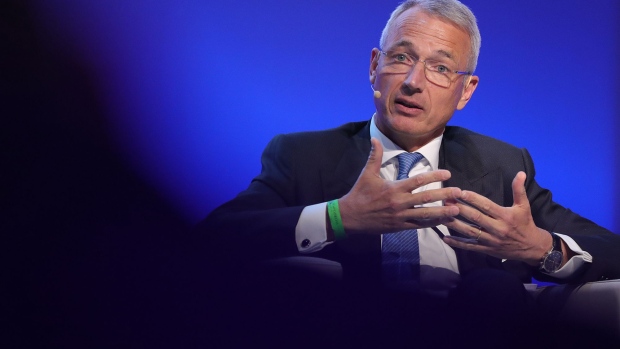Apr 29, 2022
Credit Suisse’s New Chairman Pledges Humility After Scandal Year
, Bloomberg News

(Bloomberg) -- New Credit Suisse Group AG Chairman Axel Lehmann used one of his first public appearances to pledge a more humble approach to fixing the ailing Swiss lender.
The Zurich-based bank does not need “grandiose announcements and promises but humility and consistent execution,” Lehmann said, addressing shareholders at the bank’s annual general meeting Friday. “What our bank needs right now is not grand words and declarations.”
His comments stand in contrast to predecessor Antonio Horta-Osorio’s, who was forced to step down earlier this year after breaching Covid-19 quarantine rules. He began his tenure last year with words of criticism for the bank and its employees that cut deeply, in the wake of multi-billion dollar losses linked to Archegos Capital Management and Greensill Capital.
Horta-Osorio had said that what had happened at Credit Suisse went beyond what he had witnessed in decades of working at several banks in different countries; a career which included bringing Lloyds Banking Group Plc back from the brink of bankruptcy after the financial crisis.
Lehmann, a Swiss insider who spent almost two decades at Zurich Insurance before joining UBS Group AG, said he has done a lot of listening to stakeholders and stressed the importance of renewal. The entire executive board is new except for the chief executive officer. Lehmann pledged stability and continuity in sticking to a strategic direction that will move more capital and focus from investment banking to wealth management.
The board of directors and executive management team are united in the challenges that they face, “knowing the magnitude and the multitude,” the chairman said. There is a lot of work to be done, though Lehmann said he did not want to forget the many strengths of the bank either.
“I know that we cannot change the past but we must learn from the past and past issues, and we need to draw the right lessons from them,” Lehmann said.
Lehmann said that the bank’s problems could not be solely attributable to isolated poor decisions or individual decision-makers but rather the whole organization had failed too often to anticipate risks to counter them proactively and prevent them.
The bank would now stand for client focus, risk culture and “speak-up” culture, Lehmann said.
©2022 Bloomberg L.P.


